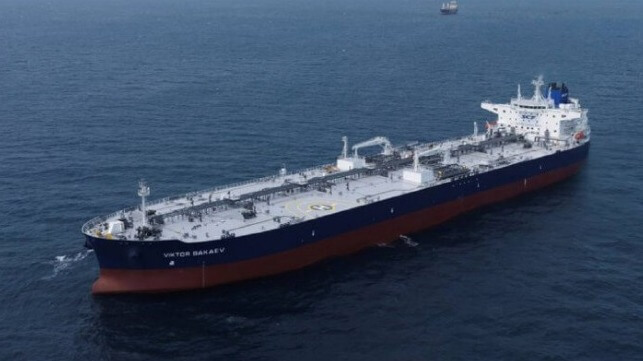Global Oil Markets Respond as US Sanctions Tankers for Price Cap Violations

Global oil markets remained on edge today following yesterday’s announcement that the U.S. with the support of the G7 and Australia was imposing the first sanctions on tankers for violations of the price cap on Russian crude. It was the first specific action by the Biden administration with Treasury officials saying their goal was to send a clear signal to Russia and the market and that there was broad support among the coalition to take action following the increase in Russian oil exports and growth in the so-called “shadow fleet.”
CNBC cites a more than four percent jump in the price of oil. One of the key benchmarks is now hovering just below the $ 90-a-barrel level. U.S. West Texas crude was also up strongly to just over $86 a barrel. The price jump comes as Western countries have been trying to hold the line on rising oil prices as a means of controlling inflation.
While calling it a “new phase in the enforcement of the policy,” many observers noted that the U.S. Treasury had taken very metered steps in its efforts to crack down while not causing broader disruptions in the global oil markets. The Wall Street Journal reports that “some traders and analysts had started to believe that the U.S. wouldn’t harshly enforce the sanctions.” This was despite a recent statement by Treasury Secretary Janet Yellen who told the newspaper that the U.S. was likely to crack down on evasion.
“We are committed to implementing a price cap policy,” Deputy Secretary of the Treasury Wally Adeyemo said announcing yesterday’s moves. “Today’s actions demonstrate our commitment to reduce Russia’s resources for its war against Ukraine and to enforce the price cap.”
The coalition in its support statement asserted that Russia’s oil revenue had been cut by 45 percent in the first eight months of 2023 versus the prior year. The International Energy Agency however also reported yesterday that Russia’s oil-export revenues jumped to their highest levels since July 2022, nearly $19 billion.
The U.S. reacted by listing two tankers and the companies associated with the vessels while stopping short of broader efforts at the underlying entities behind each of the vessels. The SCF Primorye (158,000 dwt crude oil tanker registered in Liberia) was listed with the U.S. reporting it had carried Novy Port crude prices above $75 per barrel after the $60 cap was imposed. The vessel is one of the tankers that Sovcomflot, the Russian state company, has transferred to management through a Dubai subsidiary. The U.S. only listed the vessel and the UAE-based registered owner Lumber Marine.
The other vessel listed is the Yasa Golden Bosphorus (115,800 dwt tanker registered in the Marshall Islands) owned by a division of Turkish-based Yasa Holdings. The U.S. contended the vessel carried ESPO crude price above $80 per barrel. A charge denied by the owners.
Saying that all coalition members are dedicated to enforcing the price cap, they issued a joint statement supporting the U.S. action and promoting what they called “responsible practices in the maritime oil industry.” The advisory calls for companies to take responsible actions, including monitoring AIS signals and ship-to-ship transfers as well as seeking international certificates and appropriate capitalized P&I insurance.

that matters most
Get the latest maritime news delivered to your inbox daily.
Bloomberg is reporting that one of the tankers, Yasa Golden Bosphorus, is now operating under charter to Exxon Mobil. Although the alleged violations were prior to the contact with the U.S. company, Bloomberg is questioning what the companies and the tanker will do not that the vessel is listed. The ship, so far, has not changed course as it transports a load of Canadian crude to Houston, Texas.
Raising further concern in the global oil markets, U.S. officials hinted that this might not be the only action. They said announcing the listing of the two companies and vessels that they will remain vigilant in monitoring the compliance of shipping companies and vessels participating in the Russian oil trade.
